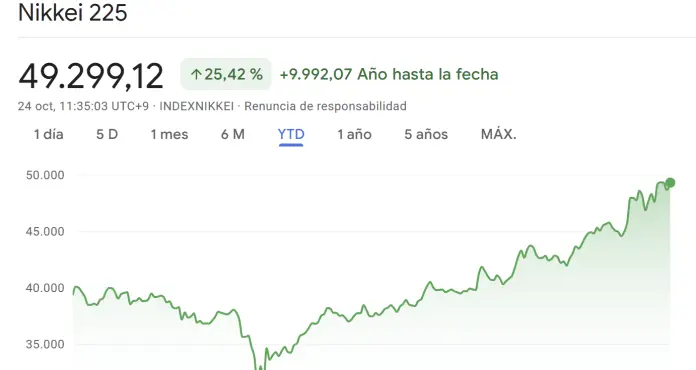- Trending TopicsView More
5.4K Popularity
3.6K Popularity
5.8K Popularity
1.2K Popularity
81.8K Popularity
- Hot Gate FunView More
- MC:$804.6KHolders:5313
- MC:$514.7KHolders:137
- MC:$385.5KHolders:22772
- MC:$273KHolders:10604
- MC:$91.9KHolders:275
- Pin
- 💥 Gate Square Event: #PostToWinPIGGY 💥
Post original content on Gate Square related to PIGGY or Launchpool for a chance to share 200 PIGGY rewards!
📅 Event Period: Oct 30, 2025, 10:00 – Nov 6, 2025, 16:00 (UTC)
📌 Related Campaign:
Launchpool 👉 https://www.gate.com/announcements/article/47886
📌 How to Participate:
1️⃣ Post original content related to PIGGY or the Launchpool campaign.
2️⃣ Content must be at least 80 words.
3️⃣ Add the hashtag #PostToWinPIGGY
4️⃣ Include a screenshot showing your participation in the Launchpool.
🏆 Rewards (Total: 200 PIGGY)
🥇 1st Prize (1 winners): 40 PI - 🚀 Gate Square Creator Certification Incentive Program Is Live!
Join Gate Square and share over $10,000 in monthly creator rewards!
Whether you’re an active Gate Square creator or an established voice on another platform, consistent quality content can earn you token rewards, exclusive Gate merch, and massive traffic exposure!
✅ Eligibility:
You can apply if you meet any of the following:
1️⃣ Verified creator on another platform
2️⃣ At least 1,000 followers on a single platform (no combined total)
3️⃣ Gate Square certified creator meeting follower and engagement criteria
Click to apply now 👉 - 📈 Market Insights Weekly: Weekly Forecast Challenge
This Week’s Theme: #WillBTCHit120K
📅 Event Period: Oct 28 – Nov 2, 24:00 (UTC+8)
💡 What to Do:
Share your market view on this week’s theme: #WillBTCHit120K ?
👉 Explain your reasoning—whether through technical analysis, macro trends, on-chain data, or market sentiment. Show your unique insight!
🏆 Rewards (Total $1000 in Position Vouchers)
🥇 Top Insight (3 winners): $150 position voucher
🥈 Excellent Analysis (6 winners): $50 position voucher
🥉 Active Analyst (10 winners): $25 position voucher
✍️ How to Participate:
1️⃣ Follow @Gate_Squ - 🚀 #GateNewbieVillageEpisode4 ✖️ @比特一哥
📈 Follow the trend, pick your points, wait for the signal
💬 Share your trading journey | Discuss strategies | Grow with the Gate Family
⏰ Event Date: Oct 25 04:00 – Nov 2 16:00 UTC
How to Join:
1️⃣ Follow Gate_Square + @比特一哥
2️⃣ Post on Gate Square with the hashtag #GateNewbieVillageEpisode4
3️⃣ Share your trading growth, insights, or experience
— The more genuine and insightful your post, the higher your chance to win!
🎁 Rewards
3 lucky participants → Gate X RedBull Cap + $20 Position Voucher
If delivery is unavailable, replaced with a $30 Position V - 💥 Gate Square Event: #PostToWinCGN 💥
Post original content on Gate Square related to CGN, Launchpool, or CandyDrop, and get a chance to share 1,333 CGN rewards!
📅 Event Period: Oct 24, 2025, 10:00 – Nov 4, 2025, 16:00 UTC
📌 Related Campaigns:
Launchpool 👉 https://www.gate.com/announcements/article/47771
CandyDrop 👉 https://www.gate.com/announcements/article/47763
📌 How to Participate:
1️⃣ Post original content related to CGN or one of the above campaigns (Launchpool / CandyDrop).
2️⃣ Content must be at least 80 words.
3️⃣ Add the hashtag #PostToWinCGN
4️⃣ Include a screenshot s


Japan warns about stock market overheating and risks from foreign funds
The Bank of Japan (BOJ) warned this Thursday that the Japanese stock market is showing early signs of overheating, while alerting about the risks of a possible sharp correction stemming from trade uncertainty with the United States.
The Nikkei 225 index reached a new all-time high this week after the election of Sanae Takaichi as the country's prime minister, driven by her pro-fiscal stimulus stance.
The index has accumulated an increase of almost 26% in 2025, reflecting the strong investor appetite that is now concerning the central bank. Evolution of the Nikkei 225 in 2025. Source: Google Finance
Evolution of the Nikkei 225 in 2025. Source: Google Finance
Hedge funds and volatility in bonds
In its semiannual report on the financial system, the BOJ noted that the growing prominence of foreign hedge funds has increased leverage in the Japanese government bond market (JGB).
The entity warned that a rapid exit from positions could amplify volatility in asset prices, affecting a wide range of financial instruments.
Between April and May, the yields on very long-term bonds surged due to massive sell-offs following rumors of a large public spending package. Although yields stabilized afterwards, analysts warn that Takaichi's plans could reactivate selling pressure and further weaken the yen.
Overheating signals in stocks and real estate
The report included a heat map of financial imbalances, in which Japanese stocks were marked in red, while the other 13 indicators remained in green.
The central bank highlighted that financial institutions maintain significant exposure to equities, which increases the risk of a potential correction.
It also warned about the rise in real estate prices in Tokyo and other major cities, driven by investment demand, including foreign flows. Prices of new condominiums in the Tokyo metropolitan area increased by 20.4% year-on-year between April and September, according to the Real Estate Economic Institute.
Stability with nuances and prudent monetary policy
Despite the warnings, the BOJ stated that the financial system remains stable, with well-capitalized banks and solid financing to withstand different scenarios.
The entity raised its benchmark rate to 0.5% in January, after emerging from a decade of ultra-expansive policy, but Governor Kazuo Ueda remains cautious about the potential impact of U.S. tariffs on the Japanese economy.
According to a Reuters survey, most economists expect a new rate hike in the fourth quarter, possibly as soon as next week.